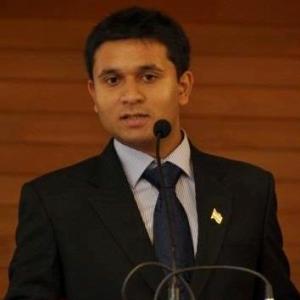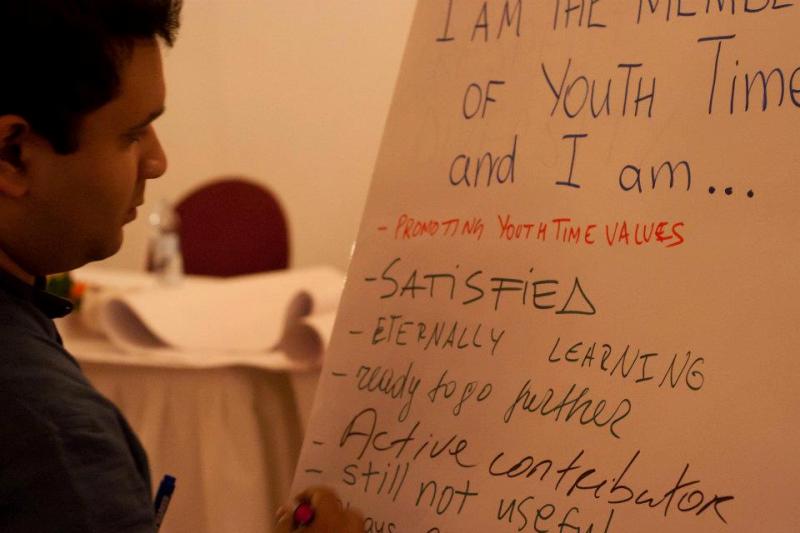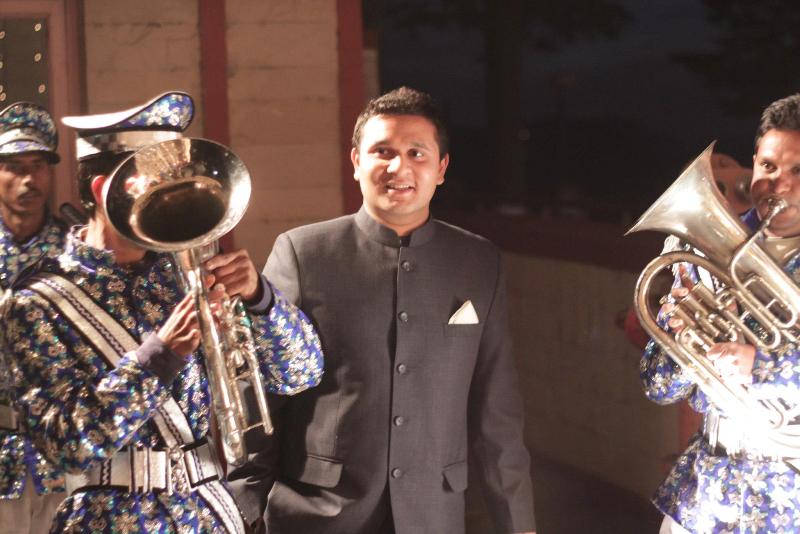President, Youth for Policy and Dialogue
A Journalism graduate from the University of Delhi & is employed at the CPR, India. He has interned at some of the country’s leading Policy Think Tanks & has been mentored by some of the best names in the policy sector.
 Q1. Short introduction to who you are.
Q1. Short introduction to who you are.
My name is Bhanu Joshi and I work with the Centre for Policy and Research. My interests include international relations, urban politics and youth policies. From college onwards, I have participated in activities including anti-ragging and other leadership programs. It was then that I realized that there is a need for an empirical change in policies. I did my schooling in Shimla and my graduation in journalism in 2010 from Delhi College of Arts and Commerce. Then, I joined CPR as a research assistant and now I am a research analyst. At CPR, we have four primary initiatives—international affairs, skill development, youth policy and economy and finance.
Q2. Current professional life
I work with Centre for Policy and Research, a premier think-tank in India. I also engage with youth policies in connection with the organization that I founded—Youth for Policy and Dialogue. It is an organisation that has currently 20-25 individuals.
 Q3. Thoughts on his work and the opinions he has about public policy
Q3. Thoughts on his work and the opinions he has about public policy
Youth for Policy and Dialogue is the only organisation in India that is part of an IDEA network which sends representatives to G-20. We have been sending youth delegations since 2010. Increasingly, we see that there is a role of multiple actors in global governance. While civil society and business were key actors, youth policy was largely absent. G-20 is a unique platform where young people come together to network and interact. We discuss issues and G-20, this year (2014), talks about employment. I feel that global governance has not seen as much interaction with young Indians as is required. My organisation wants to ensure that there is no vacuum of young leaders where they can contribute to dialogue. I will give an example. In October, 2008, the National Skill Development Mission was launched with the idea of building more scholarships on the importance of building skill development in India. By 2022, 400-500 million young people have to be trained with skill sets. Have we achieved anything? Unfortunately in India, we do not have a comprehensive policy for the development of youth. We don’t have a policy where young people can become effective entrepreneurs. We made critical recommendations to the government ministry. There is infrastructure, and yet no potential with it. There are Nehru Yuva Kendras in every town and city but we have not done anything about it.
Q4. Your success/wins/achievements
I consider my organization’s entry into G-20 as an achievement. It is very difficult to break the corridors of north and south block. They are extensively managed by finance, MEA and planning commission. These are the three entities. I’d like to highlight that there are a lot of young people who can contribute to public policy but unfortunately they don’t have a forum. We really want to break that tradition.
Q5. What program did you participate at CCS? How has CCS programs helped you to grow and apply in personal and professional life?
I was in the Researching Reality Internship—a two-month internship program in Delhi in 2008. CCS has given me many advantages. There is a barrier for young people to work in public policy. CCS provides avenues for young people to think about public policy and has removed that barrier. Young people do not have the empirical knowledge on major topics like urban finance. CCS provides the first step in entering public policy. CCS also gave me nice progression on the work front.
 Q6. What is some advice you would give on studies and career choices the students make in their life?
Q6. What is some advice you would give on studies and career choices the students make in their life?
We are living in interesting times. India is in a state of transition—it is the place where all the action is taking place, but higher education is crippled today. Students should look out for organisations which work on the big picture, ones that think big or do big. They should try to answer larger big-picture policy questions. Secondly, if a young person wants to make a mark, he/she should start writing a lot. Blogs, newspapers are important mediums of disseminating ideas. Document a lot and get published a lot.
Q7. Are you in touch with your peers?
Of course I am. I have some good friends whom I have met and engaged with at CCS.
Interviewed by Vishnu Varma, Sub-Editor of NDTV Convergence | 25 September 2014

